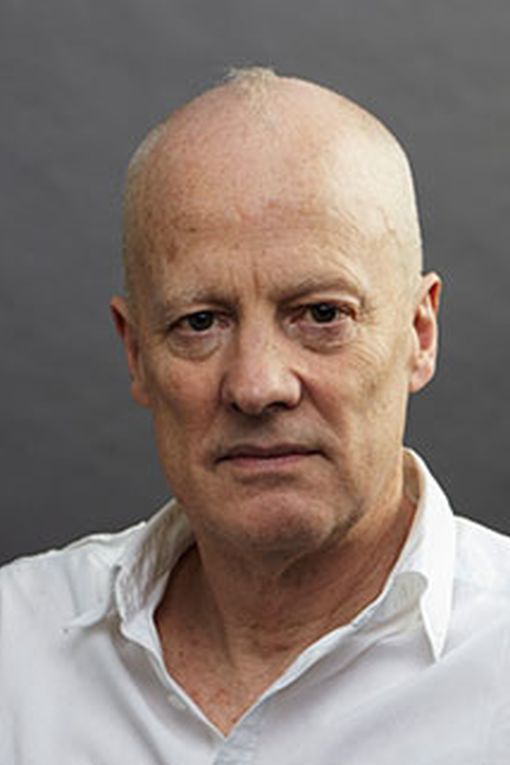Central's History
A short note by Professor Simon Shepherd, Professor Emeritus of Theatre.
Elsie Fogerty founded The Central School of Speech Training and Dramatic Art at the Royal Albert Hall in 1906. Fogerty was a specialist in speech training. She also had a firm belief in the social importance of education. The students of her school quickly became famous for their delivery in verse-speaking competitions, their appearance in theatres, and their work with children in the deprived areas of London. While Central developed a name for actor training, its founder was at the same time committed to advancing the study of theatre as an academic discipline.
Long before the founding of the first university drama department in the UK, Fogerty argued that theatre should be studied at university and that theatre training should be awarded degrees.
In 1937 Fogerty was offered space on the site at that time earmarked for the National Theatre building, with the college alongside the theatre. But that scheme, like many of the National Theatre schemes, fell through. In 1957 the School at last moved from the Albert Hall, having acquired the lease of the Embassy Theatre at Swiss Cottage and its associated buildings.
The Embassy had a reputation, from the 1930s, for experimental and politically left-wing theatre. By 1957 this reputation had faded. When Central arrived it was both rescuing an old theatre and weaving it into the fabric of new college buildings. At least that was the plan: inevitably funds had to be raised. On this occasion the champion was Sir John Davis. His work in pursuing endowments established the resources to build a new building. This was opened in 1961 by Her Royal Highness the Duchess of Kent, who was then Central’s Patron.
By 1961 three distinct departments had been established within Central. The Stage department was running its three-year course for actors, with alumni as distinguished as Lord Olivier and Dame Peggy Ashcroft already a part of its history, and a two-year course for stage managers. The Teacher Training department was preparing students for its own Diploma, then a recognised teaching qualification, and for the London University Diploma in Dramatic Art. That qualification had been instituted in 1912 precisely as a result of Fogerty’s campaign for the recognition of drama and drama teaching as subjects worthy of proper academic study. By this time the college was as famous for its Speech Therapy department as for its work in training actors.
Building work continued. In June 1972 a new studio was built on the corner of Buckland Crescent and formally opened by the School’s new patron, Her Royal Highness Princess Alexandra. Central became grant-aided by the Inner London Education Authority in 1972. In 1989 it was ‘incorporated’ as a higher education college in its own right and funded directly by government. It had been offering degrees since 1986, first of all validated by the Council of National Academic Awards. From 1992 its degrees were validated by the Open University.
From the early 1990s onwards, extensive building work has taken place: a new workshop facility was opened in 1991. In the summer of 1993 an extension was added to the Embassy Theatre – a studio theatre, design studios and wardrobe facilities. In 1997 the college completed a five-storey block to the east of the campus, providing a new library, a learning resources centre and computing facilities, a student common room, student bar and staff offices. A refurbished Embassy Theatre was opened in 2002 and followed in 2005 by the West Block, with its several floors of state-of-the-art performance spaces and rehearsal rooms.
In 2005 the Privy Council granted the college the power to award its own taught degrees. In the same year students from the Webber Douglas Academy of Dramatic Art transferred to Central, bringing with them the academy’s 100-year history of significant contributions to stage and screen. In that year the School was the only specialist theatre institution to win the award of Centre for Excellence in Learning and Teaching, becoming the Higher Education Funding Council for England’s designated Centre for Excellence in Training for Theatre. Its purpose as a Centre for Excellence is to provide a national resource for vocational performing arts training and learning, a focus for theatre research and scholarship, and a site for national and international collaboration.
With effect from September 2005 Central became a College of the University of London and in so doing fulfilled Elsie Fogerty’s original ambitions. And then in 2012 came new recognition… Fogerty used to say that while the Principal of the Academy of Dramatic Art had been seeking royal title for his institution, she had been too busy working with children in the slums to do that sort of thing. But a century later the achievement of the college she founded properly got its recognition when in November 2012 Her Majesty the Queen conferred Royal Title on Central.

Professor Simon Shepherd, Professor Emeritus of Theatre
